When Suzanne Davies, from Aberdeen, was diagnosed with a glioblastoma in 2014, she was only 35 years old and was told she had just a year to live. Suzanne, whose children Lauren and Max were four and seven at the time, had initially been suffering from fatigue, but then started getting headaches, and having problems with her speech. She underwent surgery and had chemotherapy and radiotherapy. She has an MRI scan every six months, and the most recent scan in December 2022 was stable. Nine years since her diagnosis, Suzanne is defying the odds and she is taking on the 10,000 Steps a Day in February challenge to raise money for Brain Tumour Research.
Suzanne tells her story…
In April 2014, I was really busy with my treasury assistant job at an oil company. I was feeling really drained and thought I had fatigue, but then my speech began to deteriorate, and I started to get headaches.

I went to see another GP, and he immediately sent me to Accident and Emergency at Aberdeen Royal Infirmary. I had a CT scan which revealed a mass on my brain which was the size of a golf ball.
Even though I’m a very positive person, I got upset when I thought about my children, but then I thought ‘no, I’m going nowhere’.
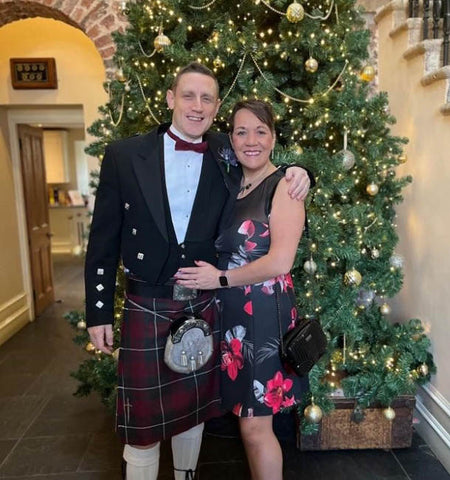
I went to see another GP, and he immediately sent me to Accident and Emergency at Aberdeen Royal Infirmary. I had a CT scan which revealed a mass on my brain which was the size of a golf ball.
Even though I’m a very positive person, I got upset when I thought about my children, but then I thought ‘no, I’m going nowhere’.
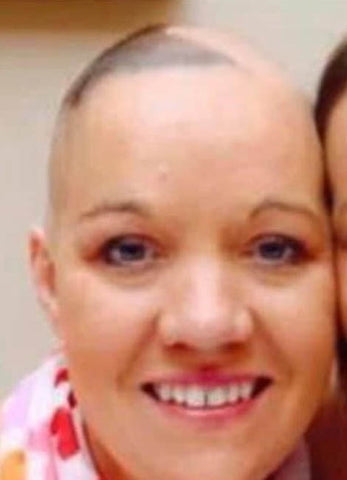
On 30 April 2014, I had an awake craniotomy. Throughout the procedure, a speech therapist continually spoke to me to make sure I was OK. The operation went well, and surgeons managed to remove 95% of the tumour, which was a glioblastoma.
After the surgery, most of the problems had gone. My speech was better, and I felt almost back to normal, it was crazy.
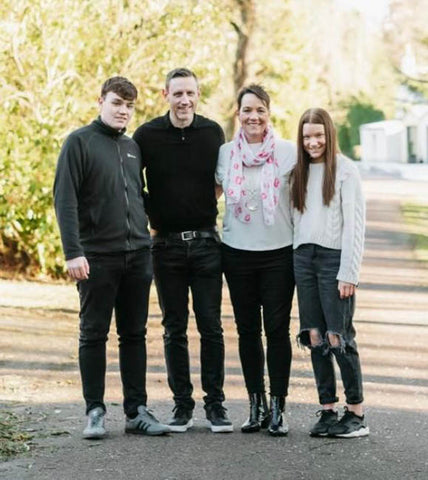
I didn’t want to know how long I had to live, but the consultant didn’t give me a chance to speak and just came out with the fact that I only had a year to live. It was horrible and I was in total shock. The whole family and I were broken.
I underwent chemotherapy and radiotherapy. The treatment resulted in me losing patches of my hair, so I decided to shave it all off.

I now have an MRI scan every six months, and the most recent scan in December 2022 was stable.
I’m just delighted, and every day I feel proud to be alive. To be able to see the kids growing up and being with my husband Owen, how could I not be happy?
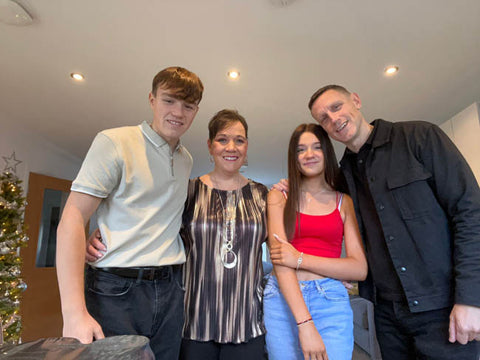
I have had some focal aware seizures where I had a scary feeling in my head and a horrible taste in my mouth. Because of this, we moved to a bungalow. On Friday 3 February, I was told that I can drive again which is huge for me as it gives me so much more freedom again.
I’m doing the 10,000 Steps a Day in February challenge to raise vital money for Brain Tumour Research. It’s so important to me because I’m still here and I’m so grateful.
I get frustrated that there isn’t currently a cure for brain tumours; more money is needed so more research can be done.
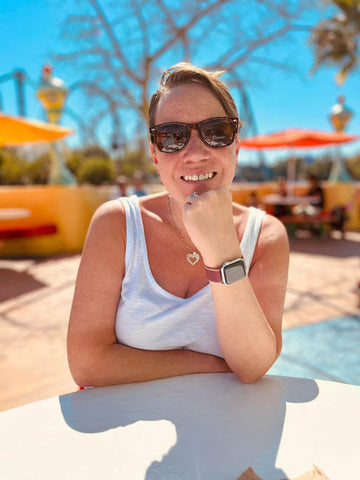
I’m really well and I feel very fortunate that I’m still here. I’ve lost three friends to brain tumours, but I’m staying positive, and I’m determined to beat this.
Suzanne Davies
February 2023
One in three people in the UK knows someone affected by a brain tumour. This disease is indiscriminate; it can affect anyone at any age. What’s more, brain tumours continue to kill more children and adults under the age of 40 than any other cancer yet, to date, just 1% of the national spend on cancer research has been allocated to this devastating disease since records began in 2002.
Brain Tumour Research is determined to change this.
If you have been touched by Suzanne’s story you may like to make a donation via www.braintumourresearch.org/donate or leave a gift in your will via www.braintumourresearch.org/legacy
Together we will find a cure

